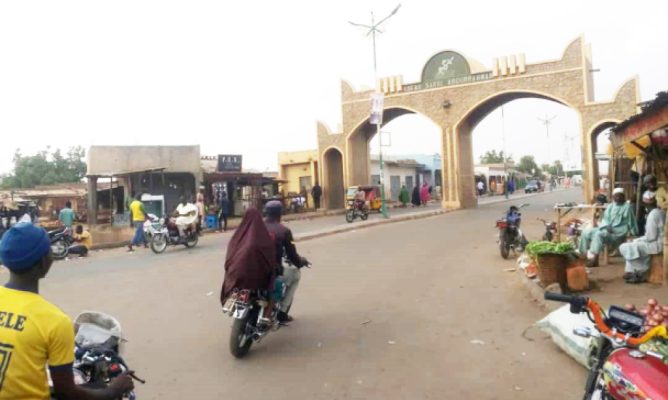In a bold move underscoring the importance of justice and accountability, the Emir of Daura, Alhaji Umar Farouk, has sacked a village head in Daura, Katsina State, Nigeria, following serious allegations of rape and kidnapping. This significant decision, reported by The Guardian Nigeria on May 20, 2025, reflects the emirate’s commitment to upholding moral standards and protecting the welfare of its community. The emir’s action sends a powerful message about the consequences of misconduct, particularly for those in positions of authority. In this blog post, we will delve into the details of this development, explore its implications, and reflect on the broader context of leadership and justice in traditional Nigerian governance systems.
The Incident and Investigation
According to the report, the dismissal of the village head came after a thorough investigation conducted by the Daura Emirate Council. The allegations against the village head were grave: rape and kidnapping, two crimes that strike at the heart of community safety and trust. While the article does not disclose the specific details of the case, such as the identity of the village head or the circumstances surrounding the allegations, it emphasizes that the council’s investigation was meticulous. This suggests that the emirate followed due process, ensuring that the decision was based on evidence rather than hearsay or speculation.
The process of investigating such serious allegations within a traditional governance structure like the Daura Emirate highlights the unique role of emirates in northern Nigeria. Emirate councils often serve as both cultural and judicial bodies, balancing modern legal standards with traditional values. In this case, the council’s ability to investigate and act decisively demonstrates its authority and responsibility to maintain order and protect the community.
The Emir’s Stance on Justice
Alhaji Umar Farouk, the Emir of Daura, made it clear that the behavior of the accused village head was unacceptable and incompatible with the values of the emirate. His decision to sack the village head reflects a zero-tolerance policy for actions that undermine the safety and dignity of community members. By taking such a firm stance, the emir reinforces the importance of accountability, particularly for individuals in leadership roles who are expected to serve as role models.
The emir’s statement, as reported, underscores the values of the Daura Emirate, which prioritize justice, integrity, and the protection of vulnerable individuals. This action is particularly significant in the context of rape and kidnapping, which are deeply traumatic crimes with far-reaching consequences for victims and their families. By addressing these allegations head-on, the emirate demonstrates its commitment to fostering a safe and just environment for all residents.
Conclusion
The sacking of a village head in Daura over allegations of rape and kidnapping is a significant development that reflects the Emir of Daura’s commitment to justice and accountability. Alhaji Umar Farouk’s decisive action sends a clear message that misconduct, particularly by those in positions of authority, will not be tolerated. This case also highlights the critical role of traditional institutions in addressing serious social issues like gender-based violence while navigating the complexities of modern governance.
As Nigeria continues to grapple with challenges like rape and kidnapping, the actions of leaders like the Emir of Daura offer hope for a more just and equitable society. By holding individuals accountable and prioritizing the welfare of their communities, traditional rulers can bridge the gap between cultural heritage and contemporary values. This incident, while troubling, serves as a reminder of the power of leadership to effect positive change and protect the most vulnerable.
What are your thoughts on the role of traditional rulers in addressing serious crimes like rape and kidnapping? How can traditional and state institutions work together to ensure justice for victims? Share your views in the comments below, and let’s continue the conversation about building safer, more accountable communities.
Join our Whatsapp channel to stay updated always!


